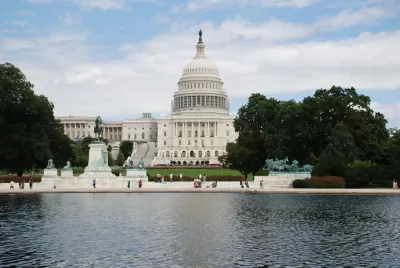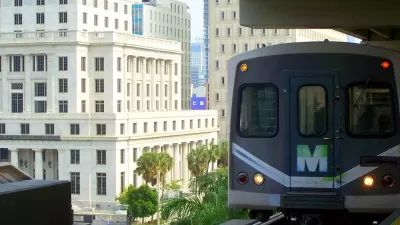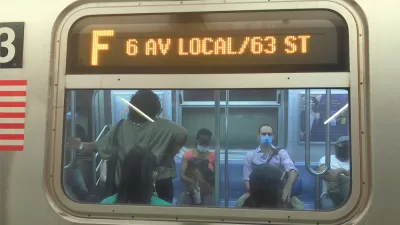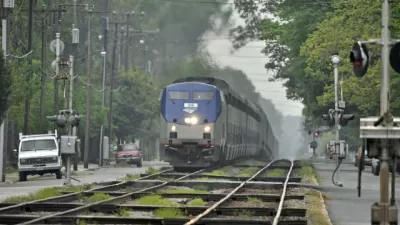The economic fallout of the COVID-19 pandemic has already hit public transit revenues hard, and the concerns of millions of renters around the country about how they'll afford to pay the rent are weighing heavily on the country.

[Update: the text of the Senate version of the bill [pdf], and a summary, have been released [pdf].]
"Senators and Trump administration officials reached an agreement early Wednesday on a sweeping, roughly $2 trillion stimulus measure to send direct payments and jobless benefits to individuals as well as money to states and businesses devastated by the coronavirus pandemic," report Emily Cochrane and Nicholas Fandos.
"Lawmakers and aides were still drafting portions of the bill early Wednesday morning," according to the article, so a text of the bill was not available as of this writing, but initial reports indicate that transit and housing will both receive a sizable infusion of funding in the final version of the bill.
Diane Yentel of the National Low Income Housing Coalition is on Twitter this morning, sharing news about the stimulus package’s funding for housing. According to Yentel, the stimulus bill will include (in addition to other sums of money):
- $4 billion in Emergency Solutions Grants to assist homeless shelters and outreach workers working to reduce risks from the coronavirus for the homeless.
- $5 billion in Community Development Block Grants, which can be used for rental assistance.
- $685 million for public housing.
- $1.25 billion in Tenant-Based Rental Assistance [pdf].
- $1 Billion in Project-Based Rental Assistance [pdf].
Yonah Freemark, a transportation researcher at MIT who also runs The Transport Politic website, is also on Twitter this morning mining the available information about the stimulus bill for details on transit for beleaguered public transit systems.
According to Freemark, the bill includes $25 billion for public transit agencies, including funding for operations. The bill almost triples annual spending on transit from the federal government, and provides a huge infusion of dollars for transit operations, according to Freemark, "which have been mostly off-limits for federal transit funding for years."
Calyton Guse, New York Daily News transit report, is also on Twitter reporting details of the bill specific to public transit in New York. In total, the state of New York will receive $4.35 billion for transit, including $3.8 billion just for the MTA.
The MTA had asked Congress for $4 billion in funding last week, and the American Public Transportation Association (APTA) asked for $12.5 billion for all transit agencies, so the final stimulus bill, expected to pass later today, increased the funding on both those requests.
Planetizen will continue to update this story as more details emerge.
FULL STORY: Congress and White House Strike Deal for $2 Trillion Stimulus Package

Planetizen Federal Action Tracker
A weekly monitor of how Trump’s orders and actions are impacting planners and planning in America.

Chicago’s Ghost Rails
Just beneath the surface of the modern city lie the remnants of its expansive early 20th-century streetcar system.

San Antonio and Austin are Fusing Into one Massive Megaregion
The region spanning the two central Texas cities is growing fast, posing challenges for local infrastructure and water supplies.

Since Zion's Shuttles Went Electric “The Smog is Gone”
Visitors to Zion National Park can enjoy the canyon via the nation’s first fully electric park shuttle system.

Trump Distributing DOT Safety Funds at 1/10 Rate of Biden
Funds for Safe Streets and other transportation safety and equity programs are being held up by administrative reviews and conflicts with the Trump administration’s priorities.

German Cities Subsidize Taxis for Women Amid Wave of Violence
Free or low-cost taxi rides can help women navigate cities more safely, but critics say the programs don't address the root causes of violence against women.
Urban Design for Planners 1: Software Tools
This six-course series explores essential urban design concepts using open source software and equips planners with the tools they need to participate fully in the urban design process.
Planning for Universal Design
Learn the tools for implementing Universal Design in planning regulations.
planning NEXT
Appalachian Highlands Housing Partners
Mpact (founded as Rail~Volution)
City of Camden Redevelopment Agency
City of Astoria
City of Portland
City of Laramie





























